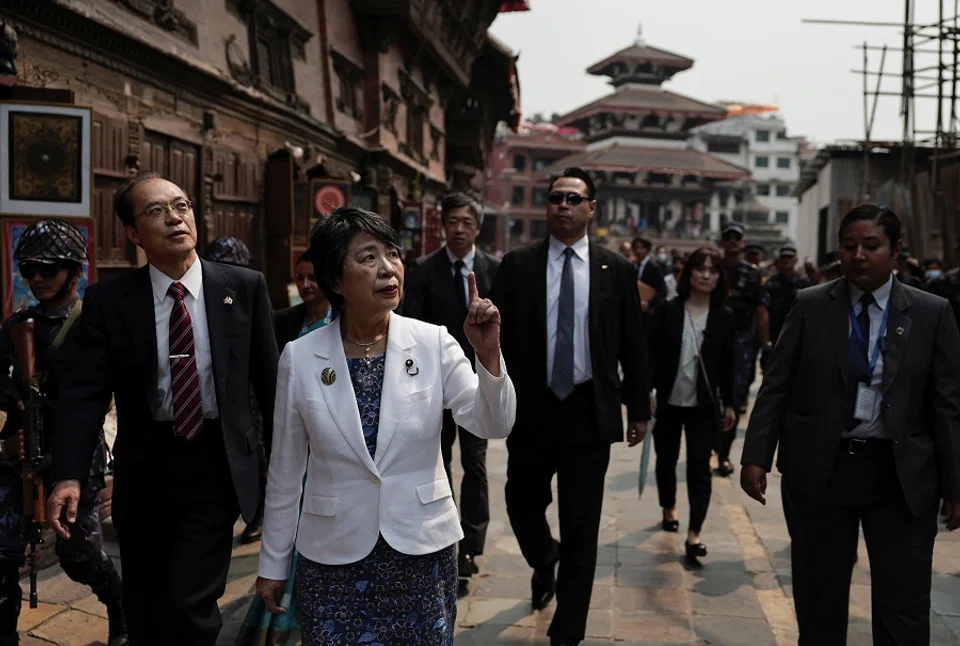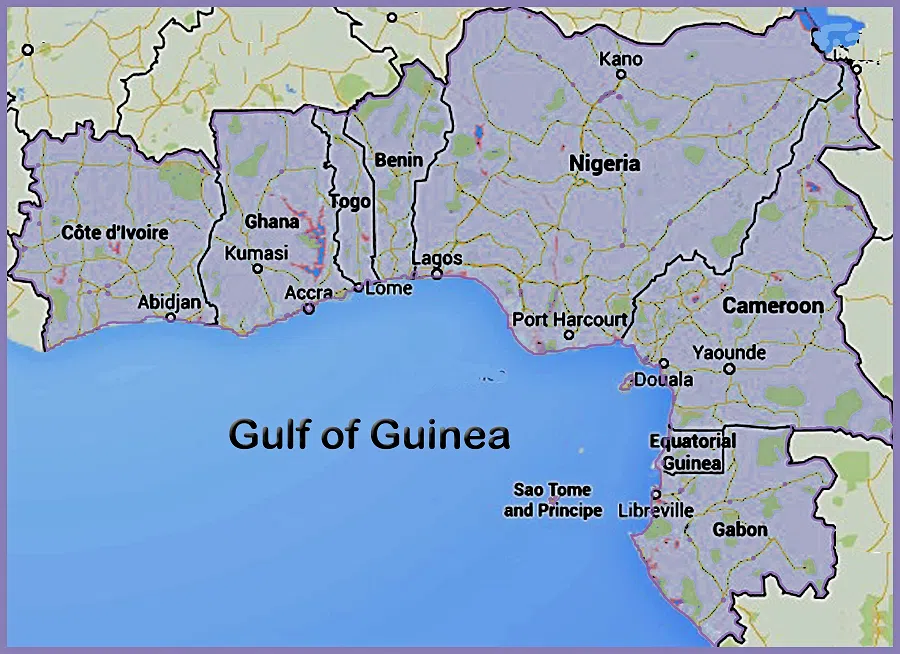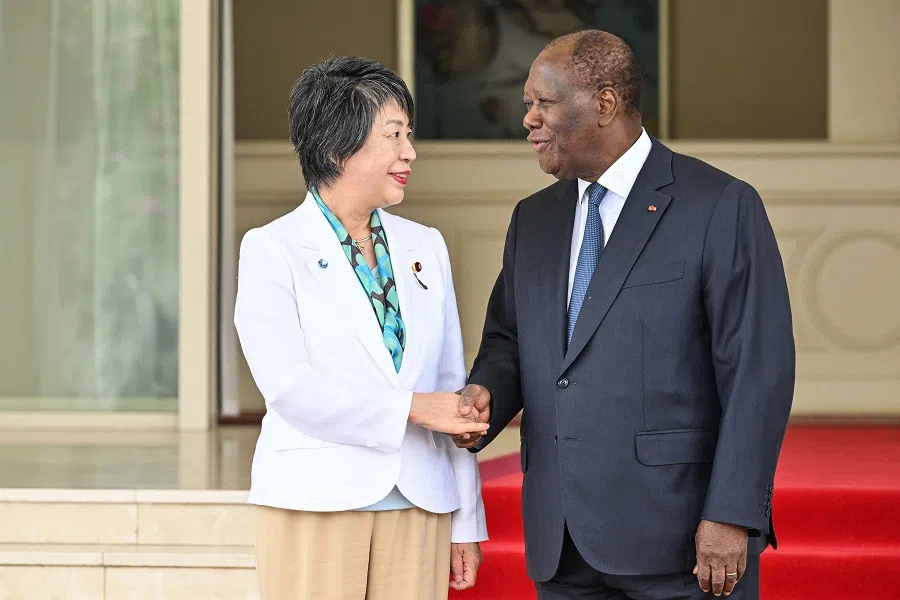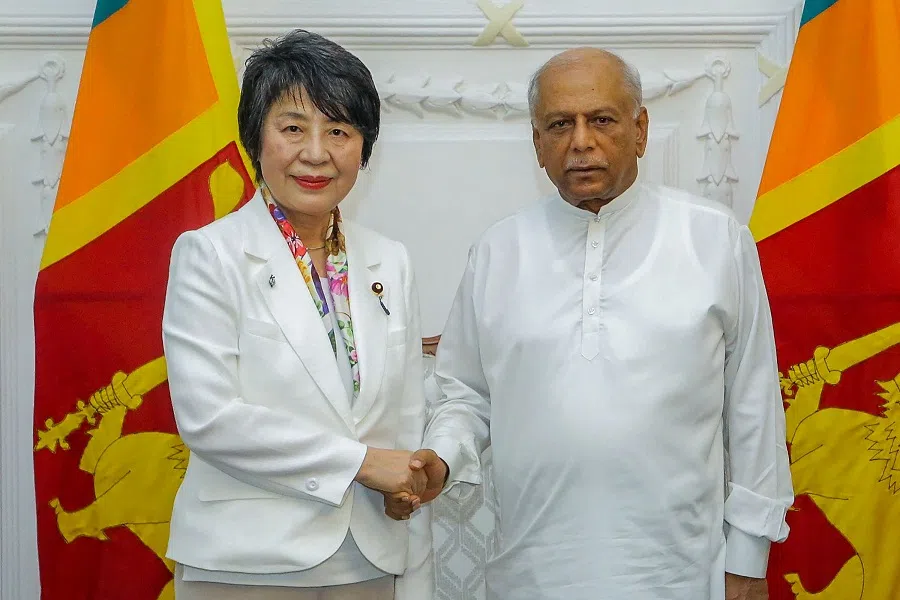Japan’s ‘global south’ diplomacy and the China factor
Commenting on Japanese Foreign Minister Yoko Kamikawa’s recent visits to “global south” countries, Japanese academic Shin Kawashima says while the minister did not specifically mention China in her talks, her flurry of visits can very much be seen in terms of strategic diplomacy, with China in mind.

Late April to early May offers Japan’s prime minister and cabinet ministers an opportune window for international travel. While they are required to attend the Diet when it is in session, they can take advantage of the Golden Week holiday during this period when overseas trips are permissible.
During the same timeframe that Prime Minister Fumio Kishida went to France and South America, Foreign Minister Yoko Kamikawa visited Madagascar, Ivory Coast (Côte d’Ivoire), Nigeria, France, Sri Lanka and Nepal.
Stepping up ‘global south’ diplomacy
Kamikawa’s visit to France coincided with the prime minister’s visit, but the other destinations were all countries in the so-called global south. This suggests that her diplomatic efforts were particularly attuned to the importance of this region.
Notably, some of these nations are grappling with democratic setbacks; for instance, in countries like Ivory Coast, Kamikawa underscored the importance of democratic values and ideals. Ivory Coast was also among the four African nations visited by Chinese Foreign Minister Wang Yi in January 2024, along with Egypt, Tunisia and Togo.
... alongside a focus on the global south, Kamikawa has selected nations that serve as “land-sea junction”. This can be interpreted as a strategic diplomatic move, with an eye on the relationship with China.
Madagascar is also a major country in eastern Africa that has recently become a focal point for China and India. It occupies an important part of the Indo-Pacific region, of which Japan is also an advocate. Nigeria, abundant in resources, maintains close ties with China. Nepal and Sri Lanka, India’s neighbours, are also attracting considerable scrutiny in their relations with China.
As evident, alongside a focus on the global south, Kamikawa has selected nations that serve as “land-sea junction”. This can be interpreted as a strategic diplomatic move, with an eye on the relationship with China.

In addition, the Japanese government is planning to host the Tokyo International Conference on African Development (TICAD) ministerial meeting in August 2024 and the TICAD 9 summit in 2025, so this visit to Africa could be seen as a way to prepare the ground.
Fostering stability of Sahel and Gulf of Guinea coastal region
During her visit to Madagascar, Kamikawa acknowledged Madagascar as “an important partner in promoting a Free and Open Indo-Pacific (FOIP)” and committed to collaborating to uphold a free and open maritime order grounded in the rule of law, including maritime security. Furthermore, Japan will enhance the maritime connectivity of the Toamasina Port, which it supports, and extend cooperation aligned with Madagascar’s development plan.
In Ivory Coast, Kamikawa stated that the two countries will continue to advance existing cooperation, to support the political and economic stability of the Sahel region and the coastal countries of the Gulf of Guinea. She noted that Japan is cooperating in border management in northern Ivory Coast, as well as implementing wide-ranging projects that contribute to maritime security in the Gulf of Guinea, with the premise of strengthening economic ties. She also reaffirmed the importance of shared values such as the rule of law and democracy.
Japan is interested in the stability of the Gulf of Guinea coastal region, especially maritime security, and is implementing various projects to stabilise the regional order.
In Nigeria, Kamikawa said that Japan supports the political and economic stability of Nigeria and other coastal countries of the Gulf of Guinea, and will continue its humanitarian and development assistance to address root causes such as poverty and humanitarian crises in the Sahel.

From the above, it can be seen that Japan is interested in the stability of the Gulf of Guinea coastal region, especially maritime security, and is implementing various projects to stabilise the regional order.
Elephant in the room
In Sri Lanka, Kamikawa toured the port of Colombo, describing Sri Lanka as an important partner that is strategically located on the sea lanes in the Indian Ocean. She also announced Japan’s intention to further cooperate with Sri Lanka in the maritime field, noting Japan’s provision of a sonar-equipped ship for nautical charting purposes. These statements were probably made with the Indo-Pacific in mind.
Regarding Sri Lanka’s debt issue, which is attracting global attention, Sri Lankan Foreign Minister Ali Sabri expressed “his appreciation for Japan’s contribution to the discussions on debt restructuring”.
Kamikawa emphasised the importance of promptly signing the memorandum of understanding on debt restructuring with the official creditor committee — formed in May 2023 to discuss the Sri Lankan authorities’ request for debt treatment and co-chaired by India, Japan and France — and swiftly implementing debt restructuring with all creditors transparently and consistently. These actions were also undertaken with China in consideration.
But it is characteristic of Kamikawa that she never mentions the word China, focusing instead on traditional Japanese policy issues...

In Nepal, Kamikawa emphasised the importance of the Women, Peace and Security (WPS) concept, and an agreement in principle was reached to strengthen cooperation with Nepal in the field of WPS.
In summary, Kamikawa’s visits to the coastal countries of the Gulf of Guinea and the “land-sea junction” countries in the Indo-Pacific showcase Japan’s commitment to supporting the sustainable growth of each region and the development plans of the partner countries. At the same time, the goal is to build consensus on issues related to the spirit of a FOIP based on the rule of law. The hidden issue, of course, is “China”.
But it is characteristic of Kamikawa that she never mentions the word China, focusing instead on traditional Japanese policy issues such as the economy, oceans and connectivity, while also addressing global issues such as the WPS.





